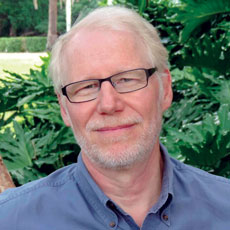
When I wrote my first book, Dementia Beyond Drugs: Changing the Culture of Care (published by Health Professions Press in 2010), my primary goal was to challenge the rapid rise in antipsychotic drug prescribing for people living with Alzheimer’s and other forms of dementia. I used that book to challenge the notion that these drugs were beneficial, to suggest ways of identifying unmet needs as a cause of distress, and to tie my approach into the process of “culture change” in long-term care.
I am pleased that so much more attention has been paid to these drugs and that federal initiatives are now underway to reduce the overuse of the medications. But in spite of our progress along these lines, we still have a long way to go. One-fifth of all adults living in U.S. nursing homes continue to take these drugs; but a lesser known fact is that there are likely many more people with dementia using them in the community. Therefore, this is not simply a nursing home problem, but arises from deeper societal views about dementia and how best to support people who live with the condition.
Furthermore, the emerging literature on “nonpharmacological interventions” has not succeeded in providing long-term solutions for many people, such that expressions of need continue to recur on a regular basis. I have since realized that we needed to look much deeper to find more durable solutions.
A purely biomedical view of dementia is too narrow to provide new insights. And in spite of our efforts to avoid harmful medications, even advocates of “person-centered care” tend to define and measure our goals in terms of this too-narrow view. So I set out to re-examine dementia from a different framework — one that takes us beyond “interventions” and “programs” to a proactive, strength-based approach.
My newly released book, Dementia Beyond Disease: Enhancing Well-Being, (also from Health Professions Press) is intended to do just that. “Well-being” is a concept that reaches beyond health status, cognitive or functional ability. There are many good models for well-being, but the one I chose for my book (based on a 2005 white paper commissioned by The Eden Alternative®) lists seven key “domains”: identity, connectedness, security, autonomy, meaning, growth and joy.
These seven aspects of well-being are important to everyone, regardless of age, culture, or ability. But our approaches to supporting a person with changing cognition rarely acknowledge this; and our care environments, from one’s home to the nursing home, do not have well-defined pathways for preserving them.
The somewhat radical thesis of my new book is that the majority of distress and other personal expressions we see actually stem from erosion of one or more of these domains of well-being. And the answer to one’s distress is not simply to respond or intervene, but to examine these domains and work proactively to restore them. It may seem counterintuitive to turn our focus away from those specific expressions and work instead on enhancing well-being, but this is the key to sustained success in supporting better lives for those who live with dementia and their care partners.
After some introductory chapters, the book centers on these seven domains, with a chapter devoted to each. Each chapter describes how that particular domain is challenged by cognitive change, as well as how it is further eroded by our systems and approaches to care. Each domain is explored in both community and long-term settings, and I once again challenge the practice of segregated living — this time to a greater degree than in Dementia Beyond Drugs.
Each chapter also has several digressions that fit the subject matter and raise the challenges even further. For example, the “connectedness” chapter addresses such topics as the problem of rotating staff assignments in nursing homes, social isolation in the community, and issues surrounding intimacy and sexuality. Each chapter concludes with a section detailing how we can use the processes of personal, operational and physical transformation to help restore that well-being domain in any living environment.
These seven chapters are followed by a chapter showing how to apply a well-being approach to decoding distress. A final chapter examines our emerging demographics of global aging and dementia, and suggests a radical reframing of our approach to these as well.
It is my hope that this book will generate much discussion and debate about current paradigms and care practices, and will help us find better ways to move forward. Dementia isn’t going away. Let’s work on creating well-being for all, in spite of age or ability.
G. Allen Power, M.D., is the author of Dementia Beyond Disease, published by Health Professions Press. He has served on the technical advisory panel for the Centers for Medicare & Medicaid Services for their national antipsychotic drug reduction initiative.





